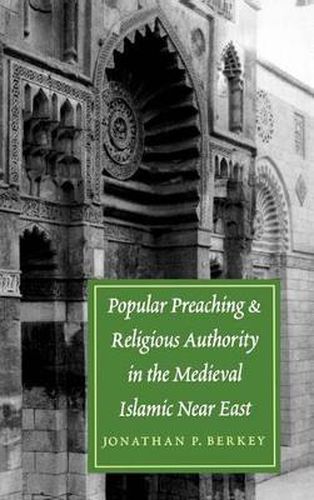Popular Preaching and Religious Authority in the Medieval Islamic Near East
Jonathan P. Berkey

Popular Preaching and Religious Authority in the Medieval Islamic Near East
Jonathan P. Berkey
Islamic popular preachers and storytellers had enormous influence in defining common religious knowledge and faith in the medieval Middle East. Jonathan Berkey’s book illuminates the popular culture of religious storytelling. It draws on chronicles, biographical dictionaries, sermons, and tales - but especially on a number of medieval treatises critical of popular preachers, and also a vigorous defence of them which emerged in fourteenth-century Egyptian Sufi circles. Popular preachers drew inspiration and legitimacy from the rise of Sufi mysticism, with its emphasis on internal spiritual activity and direct enlightenment, enabling them to challenge or reinforce social and political hierarchies as they entertained the masses with tales of moral edification. As these charismatic figures developed a popular following, they often aroused the wrath of scholars and elites, who resented innovative interpretations of Islam that undermined orthodox religious authority and blurred social and gender barriers. Critics of popular preachers and storytellers worried that they would corrupt their audiences’ understanding of Islam. Their defenders argued that preachers and storytellers could contribute to the consensus of the Islamic community as to what constituted acceptable religious knowledge. In the end, religious knowledge, and the definition of Islam as it was commonly understood, remained porous and flexible throughout the Middle Period, thanks in part to the activities of popular preachers and storytellers. Popular Preaching and Religious Authority in the Medieval Islamic Near East speaks to a number of current debates in cultural and social history, such as the reality of the categories of high and low culture and the nature of the relationship between them. It also addresses concerns of a more specifically Islamic nature, such as the medieval Muslim conception of the epistemological status of received religious knowledge.
This item is not currently in-stock. It can be ordered online and is expected to ship in 7-14 days
Our stock data is updated periodically, and availability may change throughout the day for in-demand items. Please call the relevant shop for the most current stock information. Prices are subject to change without notice.
Sign in or become a Readings Member to add this title to a wishlist.


